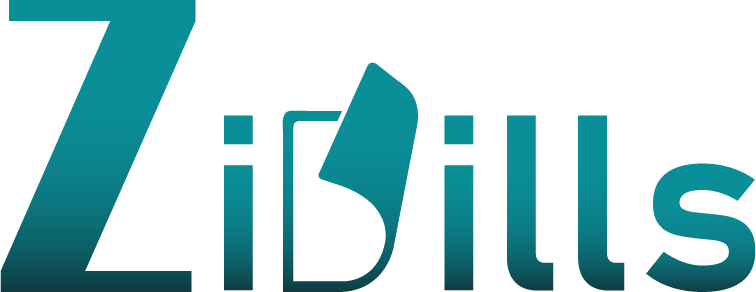Revenue Cycle Management Software
Zibills has its own capable Revenue Cycle management software.The purpose of RCM Software is to automate and optimise the different phases of the revenue cycle. To optimise data flow between clinical and billing operations, it interacts with electronic health record (EHR) or electronic medical record (EMR) systems. It requires dealing with a patient’s account across its full lifecycle, including registration, insurance verification, claim submission, payment processing, and follow-up on unpaid or denied claims. In order to assure seamless and effective revenue generation, reduce claim denials, and enhance cash flow, healthcare providers must implement RCM.

Services
The RCM Software, which Zibills, reinvents, manages coding, scrubs claims, collects co-pays, and improves communication for your benefit. With Zibills forget about the delayed insurance reimbursement, unpaid patient bills, missing data, or denied claims. We can automate Workflow, Reporting, and Data Integration in Your Medical Billing Software System For Simple Revenue Management throughout Your Medical Practice. Some incomparable services offered by our RCM platform are:
Increased Revenue Collection: From claim production to payment posting, zibills RCM services help to streamline the entire billing process. Healthcare providers can boost their income and cash flow by lowering claim denials, enhancing collections, and hastening reimbursement.
Negligible denial: Zi bills’ RCM specialists are aware of the rules governing medical billing and coding, which lowers claim rejections and mistakes. They can identify potential defects and inconsistencies in claims before submission, which leads to a decreased rate of claim denials and subsequent rejections.
Faster Claim Processing: When outsourcing RCM services, it is frequently necessary to use cutting-edge technology and streamlined processes. This can shorten the time it takes to process claims and receive payments.
Compliance and Regulation Adherence: zibills’ service providers stay up to date with the ever-changing healthcare regulations, ensuring that billing practices remain compliant and minimizing the risk of non-compliance penalties.
Access to Expertise and Specialized Skills: RCM services employ billing experts with in-depth knowledge of medical coding, insurance claims, and billing procedures. Providers benefit from this specialized skill set without having to invest in extensive training for in-house staff.
Cost Savings: Outsourcing RCM services can lead to cost savings compared to maintaining an in-house billing department. Providers can avoid expenses related to staff salaries, benefits, training, and infrastructure.
Effective Billing and Collections: our specialized services make sure that bills are sent out on time, are accurate, and are followed up on if they are not paid. This enables healthcare professionals to concentrate on providing patient care while leaving the financial aspects in the hands of experts.
Scalability and Flexibility: RCM service providers are able to meet the demands of medical facilities of all sizes, from tiny clinics to enormous hospitals. They provide flexibility and scalability to deal with fluctuating patient volumes and sophisticated billing issues.
Analytics and Reporting: RCM services frequently come with in-depth analytics and reporting solutions. In order to better revenue management, providers can acquire insights into their financial performance, spot trends, and make wise decisions.
Focus on Core capabilities: By outsourcing RCM services, healthcare organizations can free up their time to concentrate on their core capabilities, such as patient care and clinical operations.

Benefits
Registration and Eligibility of Patients Verification: To ensure proper invoicing this system is self-capable to collect and manage patient data, check insurance eligibility, and validate coverage specifics.
Claims Creation and Submission: Create and send electronic claims to insurance payers to cut down on manual labor and hasten reimbursement.
Claim cleaning and editing: it can independently Verify claims for errors, discrepancies, or missing information before submission to lower the likelihood that they will be denied or rejected. Process insurance company electronic remittance advice (ERAs) to reconcile payments and speed up payment posting.
Automated Payment Posting: Quickly post payments received from patients and insurance providers, minimizing the need for manual data entry and associated errors.
Denial Management: It can track down and handle claim rejections, assisting in swiftly resolving problems and resubmitting claims for quicker payout.
